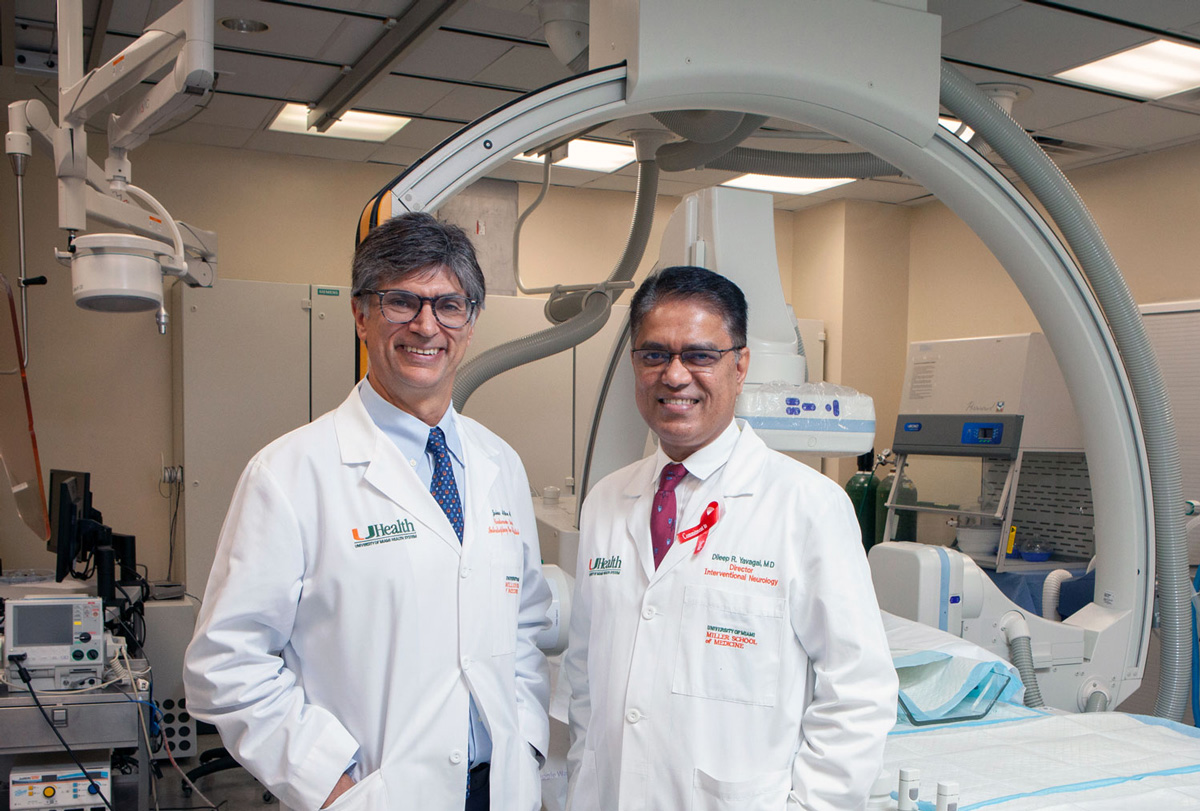Research: Getting Stem Cells to Your Brain After a Stroke

When someone has a stroke, immediate medical attention is essential to minimize brain damage and other impacts to the cardiovascular system. Catheters can help pull clots out of arteries up to 24 hours after a stroke, but faster medical responses often help prevent cognitive impairments and save lives. A new study gives hope that stroke victims may soon have a wider window, and another means to receive treatment. Stem cells delivered effectively to the brain may help minimize tissue damage 24 to 36 hours after a stroke.
While more research is needed to determine the effectiveness of stem cell treatment for stroke victims, the national study has concluded that using a tiny catheter introduced through a small hole in the groin to deliver stem cells directly to the carotid artery in the brain is safe for patients with strokes.
Dr. Dileep Yavagal, the director of interventional neurology at the University of Miami Health System, led the study and said that this groundbreaking clinical trial establishes that this minimally invasive approach is both feasible and safe.
“Stem cells are the building blocks of our bodies, and this trial used the body’s natural arterial pathway to deliver them directly to the injured brain tissue, where they potentially could enhance recovery,” he said.
“Now, we hope to conduct a larger study to establish the potential benefits of using stem cells to help stroke patients recover their function.”
None of the patients in the trial study experienced a measurable increase in their stroke risk after receiving the stem cells. Also, no other safety concerns related to the cells were seen in the study that followed patients for one year with clinical examinations and MRIs.
“Ideally, stem cells from healthy donors could be delivered between 24 and 36 hours after a stroke to minimize tissue damage,” Dr. Yavagal said.
Tags: Dr. Dileep Yavagal, interventional neurology, minimally invasive technique, stem cells, stroke
